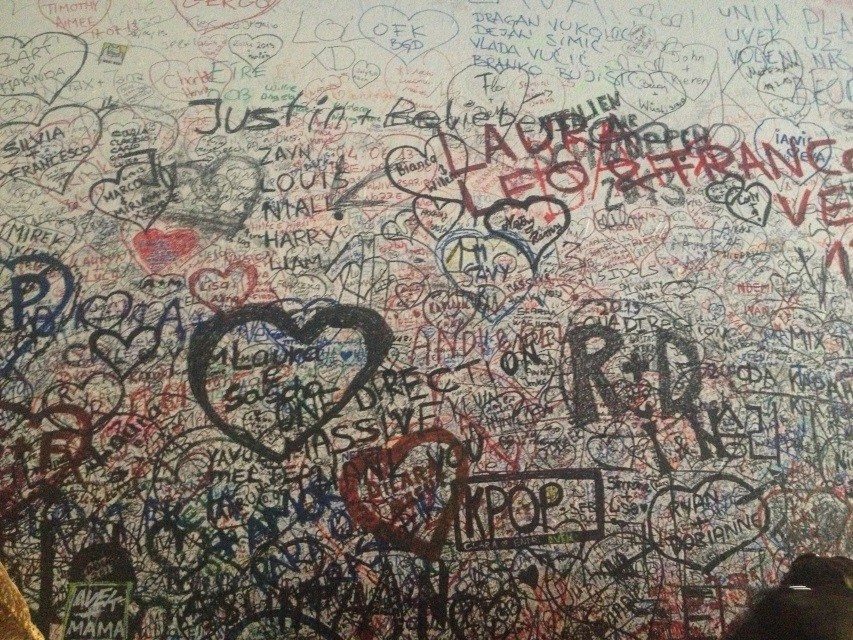Juliet’s balcony: Literary monument or shameless attraction?
As a typical English Literature student, my love for the great bard Shakespeare is tantamount to my love of good books, woolly jumpers and a healthy dose of hot chocolate. So, during my month working as an au pair in Italy (a spontaneous trip allowing me to escape England whilst dodging the financial stress of travel) there was no way I was missing out on visiting Verona and seeing Juliet’s balcony at Casa di Giulietta (Juliet’s house).
When thinking of my exciting day ahead, I envisioned myself, looking every inch as beautiful as Amanda Seyfried in Letters to Juliet, waltzing through the courtyard, feeling the history seep through my veins. I would perhaps meet my future husband here, our hands touching as I pressed my own handwritten love-note onto the walls to accompany the beauteous words of thousands of others. I would lean over the balcony, looking every inch the distressed heroine but of course, with a modern-independent-woman twist, enlightened by the literary atmosphere.
It’s safe to say I was setting the bar a little high. Firstly, poised and elegant were never going to happen in the unbearable heat. Sweat trickled down my back and my hair resembled a bird’s nest as I clumsily stumbled along the cobbled streets of Verona, dodging the endless tourists and trying not to get trampled on. Secondly, in my sticky, dehydrated state, I almost walked right past the site itself. Down a bristling, busy street lined with shops the opening appears almost out of nowhere. It looks like a sort of tunnel, and as you step in, you realise that each side is absolutely covered with graffitied love declarations addressed to Juliet herself. As much as I tried to feel touched by so many romantic scribblings, I couldn’t help but feel it all just looked a bit… messy. ‘SILVIA + FRANCESCO XXX’ and the like were scrawled in every size and colour imaginable. Layer upon layer of hurried announcements of eternal love, invocations to Juliet for help and even, (due to my stubborn thought that although I had no love life to speak of, I was here) a tiny, insignificant signature of my name. Alone. So far I was feeling more depressed than enlightened but pushing through the hordes of people, I moved on.
I entered Juliet’s courtyard, a much smaller space than I’d imagined, again fighting against swarms of people. A couple of tiny shops on the left upon entering offer you copious trinkets (that in my now slightly grumpy state looked a bit tacky) that you can sign and leave as a message to Juliet. The place was raking in the money off of a fictional character, and this was before you even got to the house. The house itself is 6 euros to enter and is nothing special. Sparsely dotted on each of the many floors are a few historical artefacts that link to the original family who owned the place: the Capellos. The similarity in name between the Capellos and the Capulets is thought to be why the house was then linked to them, and I can’t help but feel this is quite a weak connection. Along with the historical bits and bobs there is also the bed and costumes from Zeffirelli’s 1968 film version. On one floor, computers are even set up so you can email Juliet – a sight so miserably modern that it destroyed any hope I had left that the whole place wasn’t just a tourist trap.
Finally, I went out onto the balcony, a feature that was actually added to the house in the 1930s. After having a friend take a photo of me on it – my current Facebook profile picture of course (if you can’t beat them in this day and age, join them) – I squashed past the other girls queuing for their Juliet moment and left. As I went back through the courtyard I stuck to tradition and rubbed the right breast of the statue of Juliet. It is supposed to bring good luck, although it actually just felt a bit perverted.
So, if you’re interested in Romeo and Juliet, or just have a soppy heart, visit Casa di Giulietta – tick it off your places-to-go-before-I-die list and then go and explore the rest of a very beautiful city. However, do be warned. If like me, you thought the site would have an ambience of great literary history, you’ll sadly be mistaken. But treat it as a tourist site and nothing more, and you won’t be disappointed.

Comments